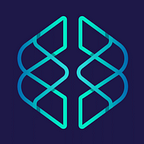Redesigning Healthcare delivery in the 2020’s: Agile Practices
Following on from the previous discussion papers, in this series on Agile practices in medical care, we can now start to visualise a widespread redesigned healthcare model for this current decade. This aims to provide all medical staff (by the way that always includes Nursing and all Allied medical team members) with a greater role in providing innovation and creativity in their workplace, creating a stronger overall organisation. This may have an enormously positive effect to the organisation in generating positive culture and capability frameworks.
We at Creative Thinking Institute advocate employing a hybrid model, one that utilises some Waterfall and Agile methodologies, for the combined benefits of each approach.
Introducing the more widespread use of Agile teams in healthcare may reduce caregiver emotional exhaustion (burnout) and staff turnover by setting up cross functional teams consisting of nurses, physicians, physiotherapist, pharmacists and all allied health professionals. This is regularly done now in hospital unit ward meetings throughout the world, where multiple patient decision inputs are required at any one time. However, this needs to be expanded to incorporate workflow practices and new innovations. This creates greater engagement across the campus.
At the Creative Thinking Institute, we have developed a series of measures that could be beneficial in setting up agile environments. These are being explored and actively researched, through which we subsequently plan to work collaboratively with Healthcare organisations.
We would like to individually expand on all of these issues in further written informational releases. Suffice to say these include (but aren’t limited to).
Regenerate Workplace©
- Identify what is working in an organisation (waterfall methodology), what is not, and what may already be working by an agile methodology.
- Incorporate innovation sub hubs and subgroups: between medical, nursing and allied health staff. Teams need to be adequately staffed.
- Create differing mentoring subgroups: with directed career planning and multiple mentoring models, encouraged and optional to all staff.
- Provide and encourage executive and Agile life-coaching: This embodies the principle of providing non selective democratised assistance. However, it needs to be emphasised that starting small and spreading in further iterative steps is most advisable.
- Provide and encourage Sprints: with Engineers, Organisational and Research psychologists, data scientists, Clinicians, biostatisticians, user representatives and managers all meeting as an Agile group. How good would that be!! This should involve Engineers coming to the hospitals, Clinicians going to engineering departments, cross pollination, creating short rapid deployment projects. Meetings could be initially over 2–3 months brackets, once every 2–3 weeks for 1–2 hours. Ideally a trial would be ideal, however this should become standard care in an Agile organisation.
- Create horizontal collaboration pathways: to improve psychological safety, thus fostering innovation. Practice collaboration and transparent decision making.
- Encourage and assist to provide dedicated investments: for innovation using lean start up techniques in an agile framework.
- Focus on the entire project not just the parts, understand how change in one area of the organisation affects other areas. This is called “optimising the whole.”
- Establish a defined repeatable process for continued improvement.
- Expect to have roadblocks, pushback and some resistance to change.
In the Agile hybrid healthcare model of the future (why not now?) imagine how productive, creative and enthused staff could be. These types of organisational designs increase staff engagement and adaptability. Attracting greater talent to the institution, improving staff retention and increasing reputational enhancement. Most importantly this may provide improved patient outcomes and lowered adverse events. Due in part to dramatically lowered staff burnout levels. Wow- we need some of that!!
Developing Agile practices at Creative Thinking Institute
From the perspective of our own healthcare company at the Creative Thinking Institute, we want to put all these practices, outlined above into general circulation. We have been evaluating and articulating our own Agile practices. To this aim, we have identified key leadership roles amongst our more experienced staff and charged them with an agile mindset. As in any start-up company, this has occurred at the same time as evaluating our own vision, mission, core purposes and values. These principles are acting as the blueprint for all future development inside the company and in our interactions outside the company.
Our vision is:
Optimising adaptability and human potential for all.
Our values are:
- We reimagine what is possible (a feature of change management)
- We always collaborate. (share and empower, transparency)
- We celebrate difference (respect for the individual)
- We do what we say we will. (reliability)
- We are an Agile Enterprise. (adaptability in practice)
Perhaps the last value listed above, really over-arches all of our mindset. We want to be an enterprise that really walks the talk. We want to support each other, grow as a team, encouraging and facilitating the personal development of all staff members. This is a must- this is our mission. Our team discussions have identified pro-agile practices that are beneficial for the functioning of the entire Creative Thinking Institute team and our subsequent productivity. We aim to do more of the following:
a) Being open to change, being adaptable.
b) Encouraging new concepts.
c) Looking at problems from multiple angles.
d) Being resourceful, finding creative solutions and demonstrating openness.
e) Asking questions- remaining curious.
f) Teaching others and collaborating often.
So, as can be seen, at the Creative Thinking Institute, one of our five core values is all about being Agile. This value will always remain in our core set, in all we do and all we produce. Over the next few weeks, we will be elaborating on our remaining four core values, so you can clearly see what we stand for. Also, I will be sharing about my personal journey in the agile leadership world. At the end of the day, all our values drive our one key collective purpose, which is:
Through a multi-faceted health platform, we help people navigate life’s competing demands.
